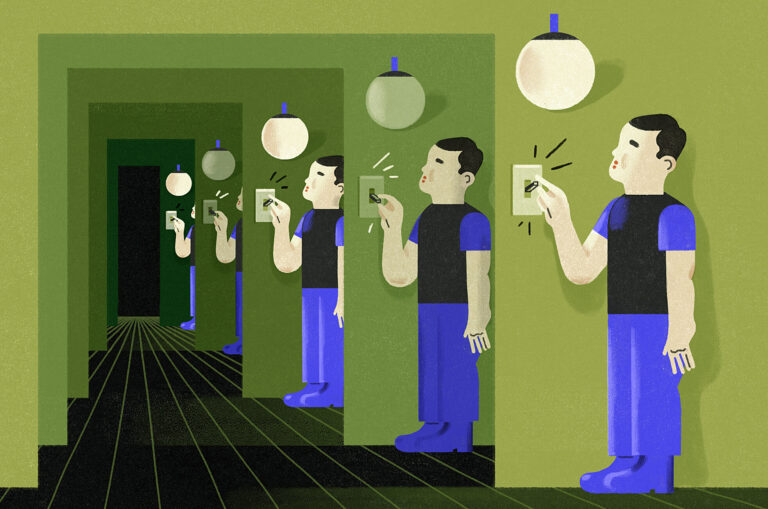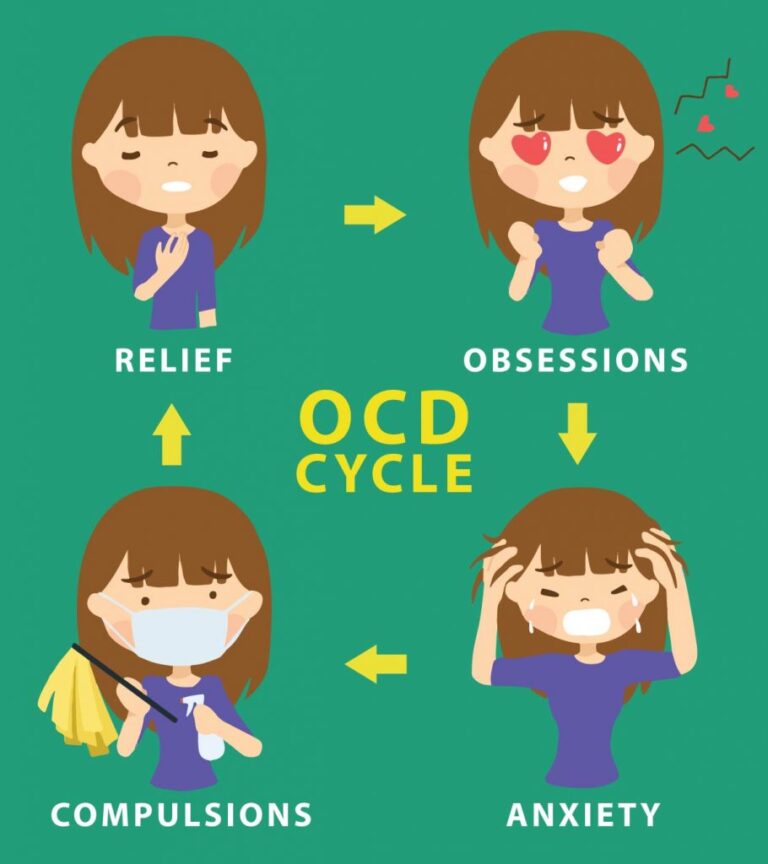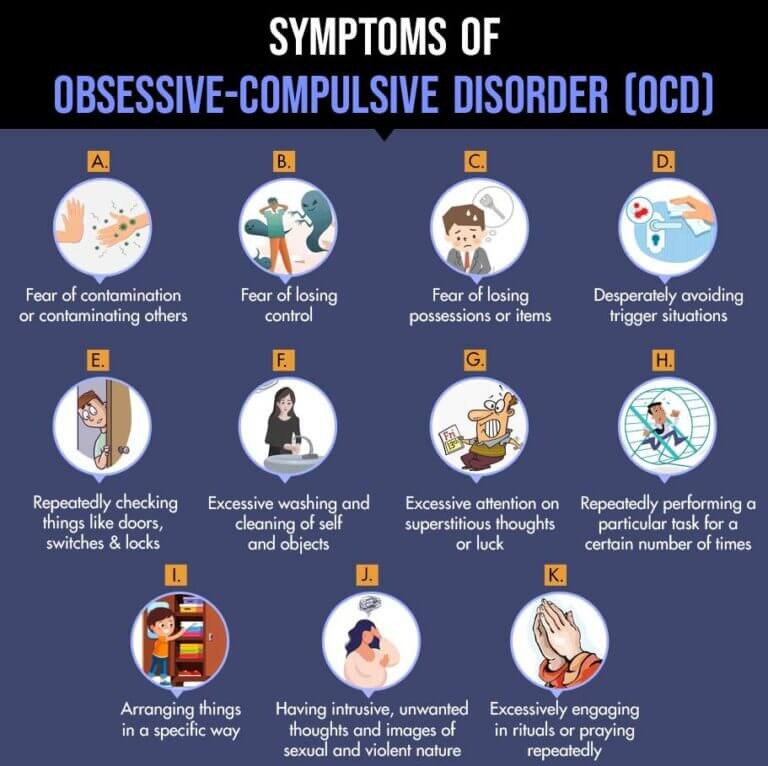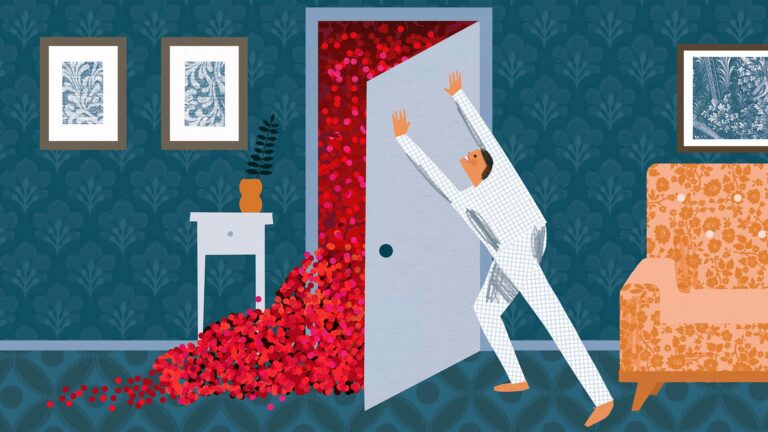OBSESSIVE-COMPULSIVE DISORDER – STRUGGLE AND TREATMENT
Living with Obsessive-Compulsive Disorder (OCD) is like living with different types of chronic illness, similar to diabetes, asthma, or coronary illness. This requires boldness, support from companions, family, and collaborators, as well as a solid association with both clinical and mental essential backings.
OCD is a repetitive compulsion or pattern of unwanted thoughts and obsessions. These obsessions and compulsions make daily activities difficult and interfere with the normal functioning of life.

The more people try to avoid and stop these compulsions they tend to increase as well as cause more distress. The compulsion is due to fear, anxiety, and the tendency of perfection.
In any event, when things are working out in a good way, OCD can capture your day. Obsessive thoughts leading to compulsive behavior accompanied by anxiety can occupy a huge amount of time and energy.
However, prescription and treatment help in treating this long-lasting condition, taking care of oneself is a distinct advantage with a lot of side advantages.
WHAT TRIGGERS OCD?
Even after extensive research scientists have not been able to identify a definitive reason for a person to develop Obsessive-Compulsive Disorder (OCD). The major causes established involve combination or one of the below reasons like; neurobiological, genetic, learned behaviors, pregnancy, environmental factors, or specific events that trigger the disorder in a specific individual. Healthcare professionals explain that the disorder can be inherited, caused by a chemical imbalance in the brain, or it can be triggered by any life event.

SYMPTOMS OBSERVED IN OCD PATIENTS
As the name suggests people with OCD have symptoms of obsessions, compulsions, or both.
Obsession is the repeated urges, thoughts, or behavior that can lead to anxiety. Some common behaviors are fear of germs or contamination, unwanted forbidden thoughts involving sex, religion, or harm, Aggressive thoughts towards others or self, or having things symmetrical or in perfect order.
Compulsion is the repetitive behavior in which a person is unable to stop due to the obsession of the person. Some examples are Excessive cleaning and/or handwashing, Ordering and arranging things in particular, repeatedly checking on things, such as repeatedly checking to see if the door is locked or that the oven is off or compulsive counting.
Some people often confuse obsessive-compulsive disorder with perfection or someone who wants everything flawless. Perfectionists tend to stop once the task is completed but people with OCD are unable to stop even after the task is completed. In case the obsession and compulsion are affecting the daily task of life it is important to see a doctor. The obsessive thoughts can be anything, including:
- Preventing or predicting possible harm or danger.
- Hygiene and contamination.
- Symmetry, ordering, and counting.
- Sex, violence, and religion.
- Collecting objects.

HOW DOCTORS DIAGNOSE & TREAT OCD?
Diagnosis of OCD is done through psychological evaluation through which the healthcare provider discusses the thoughts, feelings, symptoms and behavior patterns, physical examination as well as diagnostic criteria.
The Treatment involves psychotherapy like Cognitive behavioral therapy (CBT) & Exposure and response prevention (ERP) and medications to control the symptoms of OCD.
It is difficult to cope with OCD but some factors will help to cope with the same like:
- Admitting about OCD – it is important to admit the disorder to cure it. The person who sticks to the treatment has a high chance to get cured of OCD.
- Stay focused – setting goals for yourself and sticking to them is important for a speedy recovery.
- Join a support group – Getting in touch with people facing similar challenges helps build the confidence to cope with the challenges.
- Stick with regular activities – The meaningful activities should not be avoided like working, spending time with family and friends, etc.

WAYS TO LIVE WITH OCD
OCD does not stop the quality of life. Some of the ways below help you live a quality life.
- Food and Mood: The main thing more important than eating healthy food is eating it consistently. At the point when you’re hungry, your glucose drops. This can make you cranky or tired. Begin with an everyday breakfast, and attempt to eat little suppers all the more frequently rather than huge dinners at lunch and supper.
- Stick to your prescriptions: It tends to be tempting to get away from OCD with medications or liquor, however, they’re triggers in camouflage. Drinking liquor could feel like it counterbalances your tension, yet it makes more before it leaves your framework. The same goes for nicotine, the stimulant in cigarettes.
- Sleep on Anxiety: Anxiety can make it difficult to rest. Be that as it may, rest is significant for great emotional well-being. Rather than hoping to rest and float to the dreamland, make a rest schedule that lays out the groundwork for your body.
- Being Active: At the point when you feel restless, your body delivers a chemical called cortisol. It’s useful in little portions yet hurtful at significant levels. Regular exercise holds your cortisol levels under control and advantages everything from your bones and organs to the numbers on your scale.
- Take your meds: It is important to take the right dose at the right time. If you forget to take it or decide to skip a dose, it could set off your symptoms. The over-the-counter medicine and vitamins help in subsiding the side effects.
- Seek support: Try not to hold everything in. Help is just about as close as your telephone or PC. Now and then the straightforward demonstration of saying without holding back the thing you’re thinking can bring down anxiety and give you some point of view. In addition to your doctor, find a specialist, OCD mentor, or care group to interface you with individuals who comprehend.
- Learn to relax: Your body can’t relax if it doesn’t know-how. Relaxation techniques like yoga, meditation, taking a walk in nature or drawing a picture teach your body how it feels to be calm.
- Celebrate victories: Figuring out how to live with OCD takes time. Like some other objective, you’ll have victories and mishaps. Indeed, it’s vital to deal with your OCD, however, it’s similarly as vital to venture back and cheer the of all shapes and sizes progress you make en-route.
OUTLOOK
Individuals with OCD should be taken care of with tolerance and understanding. They need you to help them and treat them the same way you do every other person. Give them autonomy, a source of genuine sympathy when required, and listen when they need to vent.
If you or anyone you know is suffering from obsessive-compulsive disorder, our expert providers at Specialty Care Clinics will take care of your health and help you recover.
Call us on (469) 545-9983 to book an appointment with our specialists.
